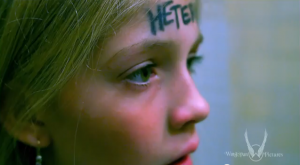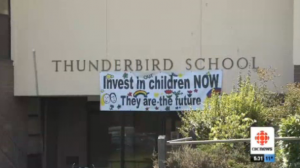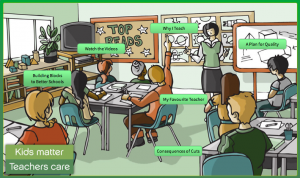Lindsay Kines, Victoria Times Colonist, November 6, 2013– The B.C. government’s failed attempt to reform the aboriginal child welfare system during the past 12 years has wasted nearly $66 million without helping a single child, the province’s child watchdog says in a new report.
Mary Ellen Turpel-Lafond accuses the government and aboriginal organizations of blowing money on consultants, pointless research projects and endless meetings that go nowhere and deliver no tangible results.
“To be blunt, a significant amount of money has gone to people who provide no program or service to directly benefit children,” she writes in her 86-page report, When Talk Trumped Service.
More than half the money was spent on a failed effort to set up Regional Aboriginal Authorities, while the rest went to self-governance initiatives in the Ministry of Children and Family Development that bled money away from front-line services, the report says.
Turpel-Lafond said the “colossal failure of public policy” took place at a time when many aboriginal children have no safe place to live and no help coping with violence, abuse, mental illness and learning disabilities.
“Children and youth deserve better, and the best contrition for this rather shameful debacle would be a real effort to improve the outcomes for those children by actually knowing what they require and what works to support them — to stop directing the money into the big theoretical fixes, and instead shore up the front lines of the system, especially in those places where the paved roads end in B.C.,” the report says.
Turpel-Lafond spares no one in her report, noting that aboriginal organizations — particularly political groups — have been willing participants in the fiasco.
“Whether this is because they have been so overburdened by so many agendas . . . or if they believe that they are actually making progress, the representative is unsure,” the report says.
The report urges the Ministry of Children and Family Development to refocus its energy on delivering front-line services to children and leave discussions about a self-government to the Attorney General.
Turpel-Lafond said Children’s Minister Stephanie Cadieux has indicated that she was unaware of the problems.
Cadieux, who is slated to speak with reporters this afternoon, issued a statement in which she said the ministry agrees with Turpel-Lafond’s findings and recommendations.
“We know our focus needs to be on providing direct services to aboriginal children and families,” the statement said. “That’s why, two years ago, the newly appointed deputy minister began the process of shifting the focus of contracts from governance to service delivery.”
All aboriginal contractors have been told that future contracts will focus on direct services, Cadieux said.
She denied, however, that the money spent over the past decade was wasted. “Our efforts to build relationships with First Nations communities have established a solid foundation for government as it continues to move forward on the development of government structures.”
Read More: Victoria Times Colonist

 Follow
Follow





BC Teachers Plan Strike Vote, Gov’t Prepares Bill
CTV: B.C. teachers plan strike vote, gov’t prepares bill
The ongoing contract dispute between British Columbia teachers and the provincial government is promising to heat up before it cools down, as each side prepares its next move. Teachers have been on a limited strike since September, and while they can’t legally walk off the job, they’ve been refusing to perform administrative duties like filling out report cards.
On Friday, the BC Teachers’ Federation, which represent 41,000 members, announced it will hold strike votes province wide, asking educators Tuesday and Wednesday whether they want to escalate limited teach-only action to a full-scale walkout.
1 Comment
Posted in BC Education, Strikes & Labor, Unions
Tagged AAUP, Academic freedom, Adjuncts, Administration, Admissions, Athletics, Budgets & Funding, Canada, CAUT, Commentary, Contingent labor, Contracts, Corporate University, Equity, Ethics, Faculty, Free speech, Governance, Government, Job cuts, K-12 issues, Layoffs, Legal issues, no confidence vote, Organizing, Protests, Research, Salary/Economic Benefits, Scandal, Strikes & Labor Disputes, Students, Teachers, Tenure & Promotion, Termination, University presidents, Working conditions